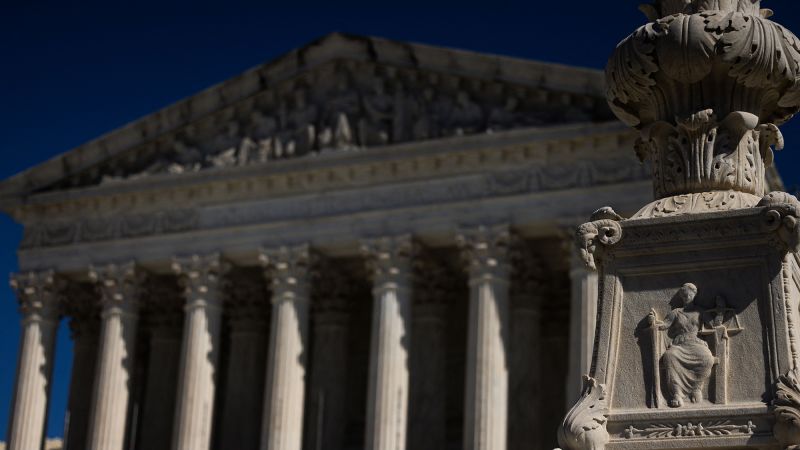Nearly every member of an official advisory committee to the U.S. Centers for Disease Control and Prevention has signed an open letter demanding the agency explain why it removed troves of vital health datasets from its website.
The removal of the datasets took place on Friday, as part of a governmentwide effort to comply with Trump administration orders prohibiting public communication related to diversity, equity and inclusion, or DEI, with an emphasis on anything tied to gender and sexuality.
At the CDC, that has led to the removal of public datasets like the Youth Risk Factor Behavioral Surveillance System, which ― as the official CDC website formerly stated ― is “used by health departments, educators, lawmakers, doctors, and community organizations to inform school and community programs, communications campaigns, and other efforts.”
Also gone from the CDC website is information about the Social Vulnerability Index, which officials use for disaster management planning, as well as AtlasPlus, where data on HIV, viral hepatitis, sexually transmitted diseases and tuberculosis could be accessed.
All of that is in addition to the removal of other health information, like web pages for the public about PrEP, the antiviral medication to prevent HIV transmission.
The removal of health information has provoked outrage from health researchers and officials across the country, among them members of the Advisory Committee to the CDC Director, which Congress created through federal law.
The committee has no power, and, as STAT News noted, the CDC director for Trump’s first administration actually disbanded the group in 2019 before the Biden administration’s replacement reconvened it in 2021.
But the group’s members have a public voice. On Saturday, 10 of them decided to use it by writing an open letter to the current acting director, Susan Monarez.
The letter demanded that Monarez provide written answers to questions about the rationale, legality and possible public health consequences of taking down the information. It also called on her to convene a meeting of the advisory group to discuss the matter.
“Datasets that are no longer accessible include critical sources of information about diseases, populations, and risk factors, including tools that allow people all across the country to understand the health of their communities,” the letter writers said.
They noted that the CDC itself has said that a core purpose of the agency is to “assess and monitor population health status, factors that influence health, and community needs and assets.”
“This is consistent with our job, we’re trying to advise the acting director like we’ve been asked to do by Congress,” Joshua Sharfstein, a letter signer who is a pediatrician and a professor at the Johns Hopkins School of Public Health, told HuffPost.
As with the purge of information in other parts of the federal government, like the Census Bureau and National Institutes of Health, it’s not clear to what extent officials at the White House or other parts of the administration were demanding these changes specifically ― or to what extent it is officials at the CDC making decisions based on their own agendas or interpretations of the orders.
Administration officials have generally not been responding to media inquiries except with short statements, like one HuffPost got on Friday from an official at the Department of Health and Human Services (which oversees the CDC) who said that changes to department websites were being “made in accordance” with Trump orders.
A banner that was appearing on some CDC web pages on Sunday said the same thing.
Whatever the precise explanation for who ordered what, it’s not difficult to imagine why some of these datasets would have run afoul of Trump administration sensibilities on DEI, gender and sexuality.
The Social Vulnerability Index, for example, includes among its statistical inputs information about minority status and language abilities.
But the purpose of the index is to help make sure disaster relief gets to communities where people might have a hard time understanding English (which has been an issue following hurricanes in Florida) or be suspicious of public health efforts (which was a challenge during COVID-19 vaccination campaigns).
And the communities that benefit from this information frequently include those that President Donald Trump and his allies have said they intend to champion.
As the letter writers note, other web pages like AtlasPlus help officials direct “federal resources to rural U.S. counties with high rates of Hepatitis C among people who inject drugs, contributing to efforts to combat the national opioid crisis.” (The opioid epidemic has hit Republican-leaning districts in the South, Midwest and Appalachia particularly hard.)
Go Ad-Free — And Protect The Free Press
Support HuffPost
Already contributed? Log in to hide these messages.
“These datasets are more than statistics; they’re our early warning system, our map to community well-being,” Nirav Shah, one of the signers, told HuffPost over email.
Shah, who is an adjunct professor of primary care and population health at Stanford University, went on to say, “By removing them, we’re not just hiding numbers — we’re dimming the lights on our ability to protect and preserve the health of all Americans.”

















